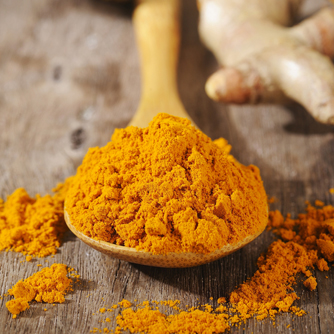Cognition and arterial aging both may benefit from daily supplements of curcumin.
Curcumin, the natural pigment that gives the spice turmeric its bright yellow color, is the focus of a number of recent scientific studies suggesting a broad range of health benefits, including potential protection against certain cancers, heart failure, diabetes, Alzheimer’s, and arthritis. M. Belviranlı, from Selcuk University (Turkey), and colleagues administered curcumin or a control compound (corn oil), for seven days, and a further five days during which they were tested using a water maze. The researchers observed that curcumin supplementation decreased the time needed to complete the water maze, and decrease the total distance traveled during the test. These study authors report that: “It may be concluded that, curcumin supplementation improves cognitive functions by decreasing the lipid peroxidation in brain tissue of aged female rats.” Separately, BS Fleenor, from University of Colorado (Colorado, USA), and colleagues supplemented the chow of aged mice with 0.2% curcumin, finding that the compound ameliorated large elastic arteries stiffening, nitric oxide-mediated vascular endothelial dysfunction, and oxidative stress. The study authors conclude that: “Curcumin may be a novel therapy for treating arterial aging in humans.”
-
Belviranlı M, Okudan N, Atalık KE, Oz M. “Curcumin improves spatial memory and decreases oxidative damage in aged female rats.” Pick Biogerontology. 2013 Apr;14(2):187-96. Fleenor BS, Sindler AL, Marvi NK, Howell KL, Zigler ML, Yoshizawa M, Seals DR. “Curcumin ameliorates arterial dysfunction and oxidative stress with aging.” Exp Gerontol. 2013 Feb;48(2):269-


